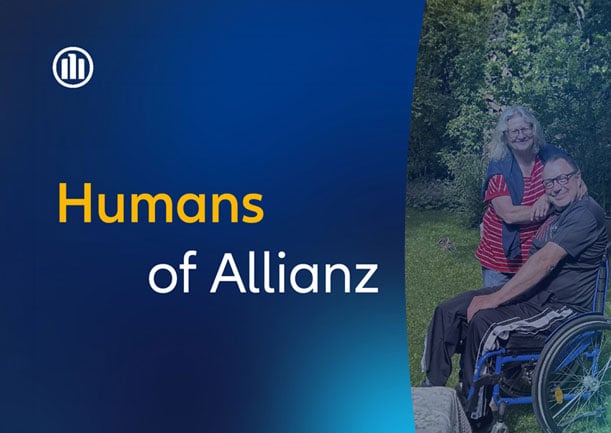The Allianz Group is one of the world's leading insurers and asset managers serving private and corporate customers in nearly 70 countries. Allianz customers benefit from a broad range of personal and corporate insurance services, ranging from property, life and health insurance to assistance services to credit insurance and global business insurance. Allianz is one of the world’s largest investors, managing around 761 billion euros* on behalf of its insurance customers. Furthermore, our asset managers PIMCO and Allianz Global Investors manage about 1.9 trillion euros* of third-party assets. Thanks to our systematic integration of ecological and social criteria in our business processes and investment decisions, we are among the leaders in the insurance industry in the Dow Jones Sustainability Index. In 2024, over 156,000 employees achieved total business volume of 179.8 billion euros and an operating profit of 16.0 billion euros for the Group.
Navigating AI with integrity:
Allianz’s Chief Privacy Officer Philipp Räther on the new EU AI Act

In an insightful interview with the Frankfurter Allgemeine Zeitung, Philipp Räther, Group Chief Privacy Officer at Allianz, highlighted the Act's significance, saying that "we are living in the age of digitalization, especially for banks and insurers, whose business is particularly data-dependent." Räther applauded the EU for addressing the challenges posed by generative AI, which can produce “hallucinations,” i.e. false results, thus advocating for transparent processes in AI development. Under the Act, Allianz can now legally inquire if AI systems have considered copyright laws. Räther notes that before this legislation, AI developers could decline to share such information. However, the Act now prohibits this practice.
One of the key factors, as Räther points out, will always be the commitment to human oversight: "Humans will always be the final decision-makers." This principle ensures that AI's efficiency does not compromise human judgment and ethics. It addresses concerns over AI's potential to automate decision-making without accountability.
Räther also emphasized the global impact of the EU AI Act, predicting it will set a precedent for AI regulation worldwide, similar to the influence of the EU's General Data Protection Regulation (GDPR). He believes that the Act's balanced approach to innovation and regulation will foster trust in AI systems, which is crucial for their acceptance and integration into society.
The Act's implications for the insurance sector are profound, promising not only to streamline processes but also to innovate product offerings. Räther cites examples from car insurance, where AI can tailor premiums to individual driving behaviors, benefiting consumers directly. "AI is advantageous for the insurance industry: processes are not only faster and cheaper but also more innovative," Räther asserts.
In conclusion, the EU AI Act represents a significant step forward in the responsible and ethical development and deployment of AI technologies. By prioritizing transparency, human oversight, and ethical considerations, it aims to ensure that AI benefits society without compromising individual rights or safety. Räther's insights from the interview offer a valuable perspective on how the Act will shape the future of the insurance industry.
You can read the entire interview in German here.
Related information
Articles in German publications (available in German only; subscription required)
About Allianz
* As of September 30, 2025.



